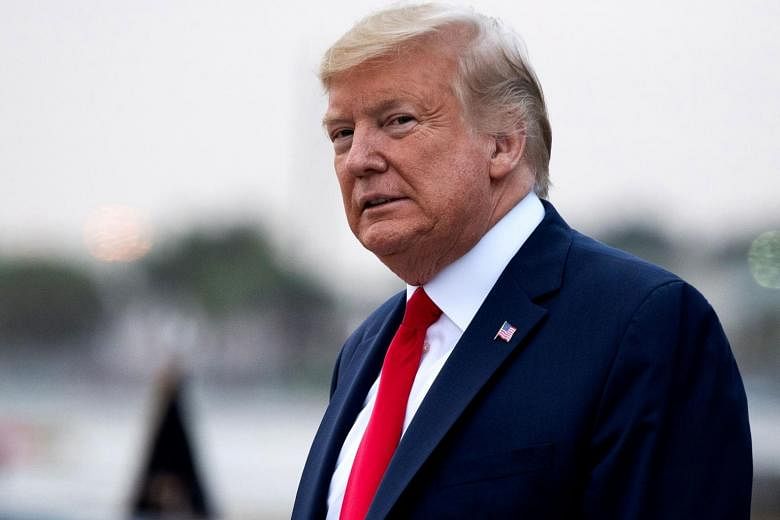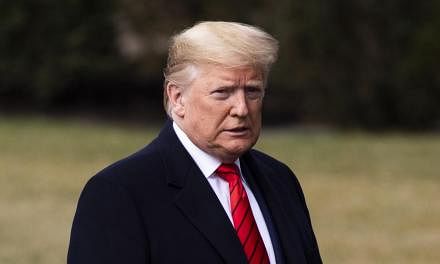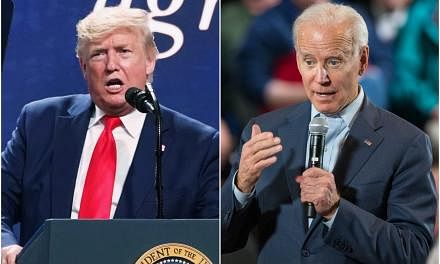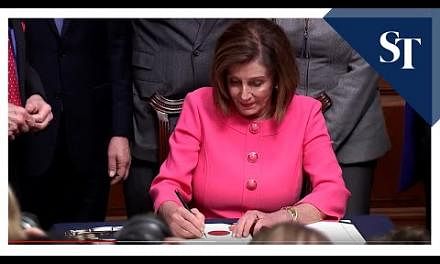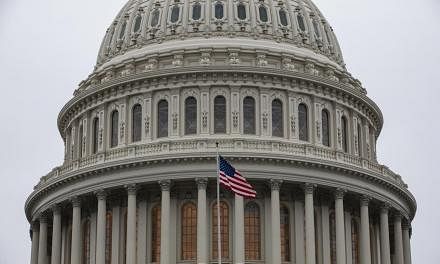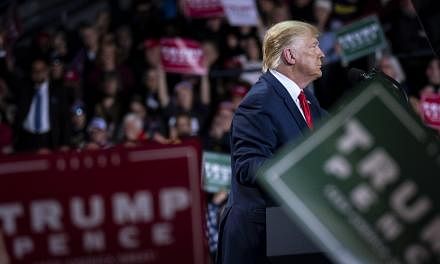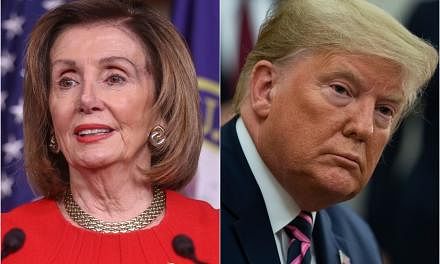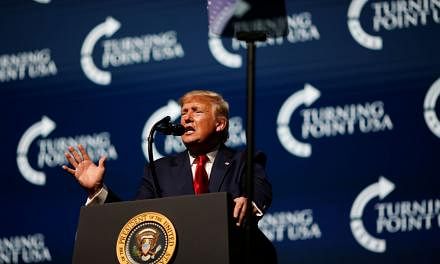WASHINGTON - Democrats and Republicans are geared up for a clash over whether President Donald Trump's conduct regarding Ukraine warranted impeachment, as House prosecutors moved into the home stretch of making their case for removing the president from office.
House impeachment managers spent Thursday (Jan 23), the second of the three days they have for opening arguments, pre-empting and rebutting Republican defences of the President's actions.
One key argument they made was that the Constitution gives Congress the discretion and ability to remove the president over abuse of power, and does not require the president to have broken a specific law before he can be impeached.
A Republican line of argument is that Mr Trump cannot be impeached because he did not commit a crime.
House Judiciary Committee chairman Jerry Nadler argued that America's founding fathers meant impeachment to be a safeguard that ensured presidents could still be held accountable, even if their misconduct was nebulous enough to not contravene a specific law.
Mr Trump's alleged campaign to pressure Ukraine to announce an investigation into his political rival Joe Biden, which would have benefited him politically in the 2020 presidential election, lies at the heart of the House's two impeachment charges.
Mr Nadler described this conduct as unprecedented, saying: "No president has ever used his office to compel a foreign nation to help him cheat in our elections."
It was this sort of situation that impeachment was designed for, he said. "The Constitution is not a suicide pact. It does not leave us stuck with presidents who abuse their power in unforeseen ways that threaten our security and democracy."
Mr Nadler also compared Mr Trump's case to the Watergate scandal, arguing that then President Richard Nixon would almost certainly have been impeached and removed from office in 1974 had he not resigned first, despite not having committed a crime.
For over nine hours, House prosecutors marshalled witness testimony, phone records, and even the President's own words to argue their case.
In response to Republicans who argued that the President was pursuing a foreign policy goal of fighting corruption in Ukraine, House prosecutors contended that Mr Trump had shown little interest in the endemic corruption in Ukraine and sought only to benefit himself.
They also argued that the corruption allegations against Mr Biden and his son Hunter were groundless.
Republicans were unswayed.
Several Republican senators joined the White House in taking to social media to lambast the prosecutors' position. On Twitter, Mr Trump retweeted comments that the trial was about undermining his election victory in 2016, and suggested that Democrats were not keen on calling certain witnesses because they had things to hide.
Friday will be the House prosecutors' third and final day of opening arguments, and Mr Trump's legal team is likely to begin their three days of opening arguments on Saturday.
President Donald Trump's exoneration by the Senate is all but certain, as Republicans continue to stand united on impeachment and procedural issues, said Eurasia Group US analysts Todd Mariano and Jeffrey Wright in a note on Thursday.
"With the facts of the case well established and fewer Americans paying attention, Republican unity against removing the president from office is not in jeopardy," they said.
After opening arguments, senators get up to 16 hours to submit written questions, and will then vote on whether to subpoena new witness testimony and evidence.
Mr Mariano and Mr Wright said that even if new witness testimony is allowed, it is highly improbable that any evidence could, at this point, spur the 20 Republican defections required to reach the 67 votes necessary for conviction.
Senators then vote on each of the two articles of impeachment. But it is questionable whether even a single Republican senator would vote for either charge, they said.
"One or two may, but impeachment has largely been a partisan exercise and is likely to remain so, with both sides entrenched and seeking to maximise the political utility of their positions," they said.
